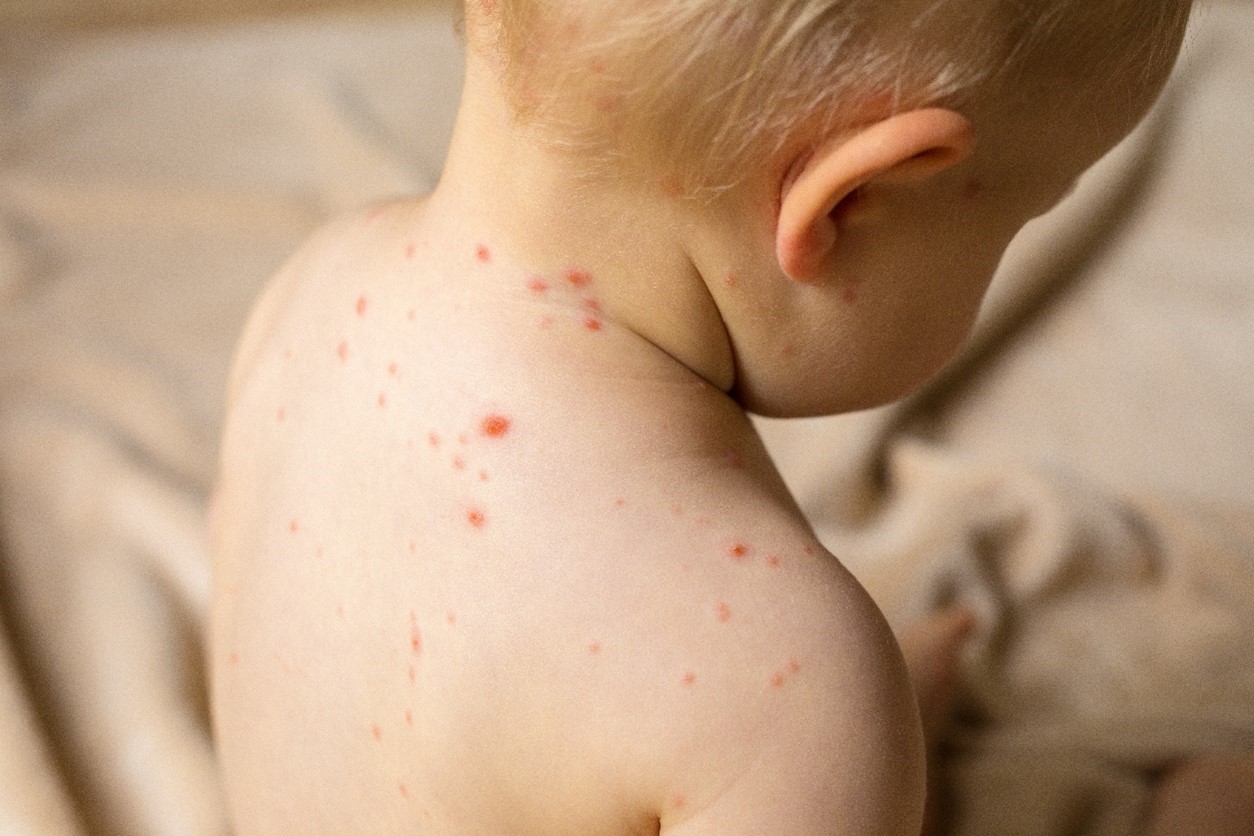What is Chickenpox?
Chickenpox is a highly contagious infection caused by the varicella-zoster virus.
It primarily affects children but can also occur in adults.
The hallmark of chickenpox is a super-itchy skin rash with blisters that eventually pop, leak, and scab over before healing.
Although usually mild in children, chickenpox can lead to more severe complications in adults.
Symptoms and Spread
Chickenpox symptoms typically appear 10 to 21 days after exposure to the virus.
Early signs include
- Body aches
- Fever
- Headache
- Loss of appetite
- Itchy rash
The rash usually begins on the
- Face
- Chest
- Back
before spreading to other body parts.
The virus spreads through direct contact with an infected person’s rash or fluids from their blisters and airborne droplets from coughing or sneezing.
Complications and Risks
While most cases of chickenpox are mild, some people, especially adults, may experience serious complications.
These include
- Dehydration
- Bacterial infections
- Pneumonia
- Brain swelling (encephalitis)
- Death
After recovery, the varicella-zoster virus remains dormant in nerve cells and can reactivate later in life, causing shingles—a painful condition characterized by blisters.
Treatment and Home Remedies
Treatment for chickenpox focuses on relieving symptoms. Antipyretics and analgesics can reduce fever and pain, but certain medications should be avoided due to the risk of severe complications like Reye’s syndrome.
Antiviral medications may be prescribed to those at risk of severe chickenpox.
Home remedies include:
- Taking lukewarm baths with colloidal oatmeal
- Using calamine lotion
- Staying hydrated
- Keeping cool to reduce itching
- Avoid scratching the rash to prevent infection and scarring
Prevention and Vaccination
The best way to prevent chickenpox is through vaccination.
Children should receive two doses of the varicella vaccine, while adults who have never been vaccinated should receive two doses.
For adults over 50 who have had chickenpox, the Shingrix vaccine can help prevent shingles.
Avoiding contact with infected individuals is also crucial for preventing the spread of chickenpox.
When to See a Doctor
Most cases of chickenpox resolve on their own.
Still, you should seek medical attention if the rash spreads near the eyes or becomes infected or if you experience severe symptoms like
- Difficulty breathing
- Dizziness
- Persistent fever
- Dehydration
Protect yourself and your family from chickenpox and its complications—schedule a vaccination or consult with your doctor today to learn more about prevention and treatment options


